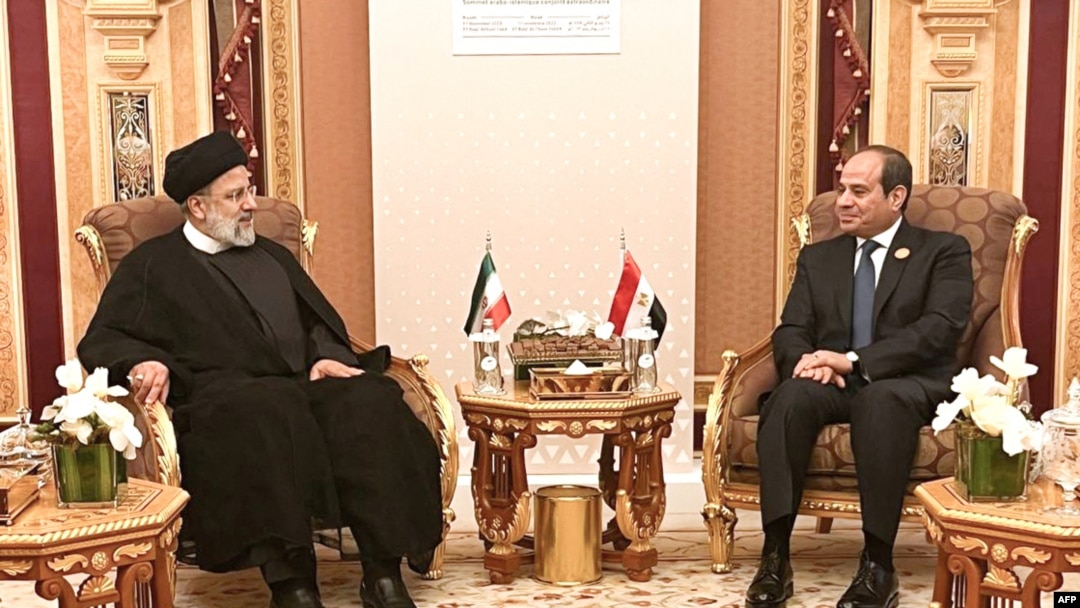As Israel continued its military operation in the Gaza Strip, targeting Hamas for its Oct. 7 attacks on Israel, Arab and Islamic leaders met in the Saudi capital, Riyadh, blasting the Israeli operation and its heavy toll on Palestinian civilians and infrastructure.
Saudi Crown Prince Mohammed Bin Salman, who hosted Saturday's summit, used strong language to condemn Israeli military operations on Gaza.
He spoke against the war and its heavy toll on women, children and the elderly and on hospitals, places of worship and civilian infrastructure. Saudi Arabia, he said, is working with its partners to put an end to this war and called for an immediate end to fighting and the opening of humanitarian corridors. He also called for the freeing of hostages held by Hamas.
Saudi-owned al Arabiya TV reported the summit's resolutions call for an international war crimes tribunal, an end to any forced displacement of the Palestinian people inside Gaza or elsewhere, and an immediate cease-fire.
Iranian President Ebrahim Raisi, whose visit to Saudi Arabia for Saturday's summit was the first by an Iranian president in more than a decade, said the Israeli military operation in Gaza was "the worst crime witnessed in human history."
Raisi went on to urge Arab and Islamic states to designate the Israeli Army a "terrorist group," and to "impose a boycott on Israel," including oil and other goods. He also demanded the establishment of a war crimes tribunal for both U.S. and Israeli leaders and officials who he said have committed war crimes in Gaza.
Egyptian President Abdel Fattah el-Sissi, using a more measured tone, called for an immediate cease-fire in Gaza, and the establishment of a Palestinian state "in accordance with the borders of June 4, 1967, and with East Jerusalem as its capital."
He said Egypt condemns the killing of innocents and "this collective punishment of Gaza, including killings and the blockade and the unacceptable forced displacement of people,” which he said cannot be justified as an act of self-defense.
Sissi called on the international community and the U.N. Security Council "to impose an immediate and unconditional cease-fire in Gaza," an "end to any forced displacement of the Palestinian people," and for the international community to "guarantee the security of civilians." He added that "humanitarian aid must be allowed into Gaza," and that Israel must "bear its international responsibility as the 'occupying power' to permit this passage of aid."
Volker Turk, the U.N. human rights chief, who on Friday called Hamas’ Oct. 7 attack on Israel “atrocious crimes,” addressed the summit, decrying the war in Gaza and its human toll.
"Across the Gaza Strip, more than 10,000 people have reportedly been killed, with a majority of women and children," he said. "Many more are surely still under the rubble. [The Israeli] forces have pushed over 1.5 million people out of the north of the Gaza Strip."
It was not immediately clear what concrete actions the Arab and Islamic states were prepared to take to implement the resolutions or declarations made at Saturday's summit. Several Arab states, including Egypt, Jordan and the United Arab Emirates, have diplomatic ties with Israel, while Iran, Syria, Lebanon and Algeria do not.


